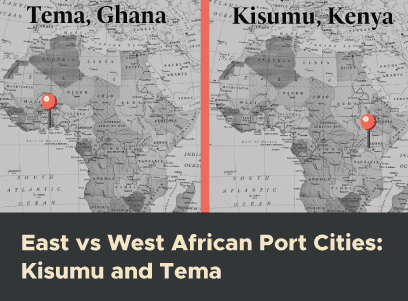
Amartya Sen has had big thoughts as a Professor at various of the world’s most prestigious universities, including the Oxford and Cambridge (UK), MIT, Cornell, Harvard, University of California, Berkley (US), and the Delhi School of Economics, Jadavpur, Nalanda (India); big thoughts on big subjects including development economics, social choice, philosophy, welfare economics, social justice, public health, measuring development, and famines; big thoughts that have received big acclaim, including the Nobel Prize in economics (1998), the Bharat Ratna, India’s highest civilian honour (1999) and more than 90 honorary degrees from universities around the world; and after reading his recently published autobiography, Home in the World: A Memoir (2021), it was clear those big thoughts began not long after his birth in India in 1933, aged between 3 and 6 Sen lived in Myanmar (then Burma) and credits the greater freedom of women in Myanmar (compared to India) he observed as influencing his later writing and research on the importance of women’s freedoms.
There is far too much big thinking for this small blog to accommodate.
Elsewhere. Charter cities are a big idea, as the website of the Charter Cities Institute proclaims,
The Charter Cities Institute is a nonprofit dedicated to creating the ecosystem for charter cities, founded on the idea that a fresh approach was necessary to tackle humanity’s most pressing challenges, such as global poverty, climate change and rapid urbanization.
What if any, is the relevance of the big thoughts of Amartya Sen for the big idea of charter cities?
It is easy to compile a thudding checklist of subject matters that are of great concern to Amartya Sen, that are not evident priorities of charter cities.
Democracy.
Sen lauds democracy as being a universal value, a characteristic value that was a new product of the twentieth century. Sen vigorously counters the Lee Hypothesis (named after Lee Kuan Yew, Prime Minister of Singapore between 1959 and 1992) that favored a more authoritarian state as one best able to promote rapid economic growth and development. The Lee hypothesis argues Sen is “based on sporadic empiricism – drawing on selective and limited information rather than any general statistical testing over the wide-ranging data that are available.” There is argues Sen a “broad consensus on a list of “helpful policies” that includes openness to competition, the use of international markets, public provision of incentives for investment and export, a high level of literacy and schooling, successful land reforms, and other social opportunities that widen participation in the process of economic expansion.” There is no reason he argues to think these policies are not consistent with democracy nor require authoritarianism to be sustained. There are wider values to democracy and political liberty argues Sen that transcends any narrow evaluation, in relation to economic growth. The value of democracy lies in those political and civil rights that give people the opportunity to loudly draw attention to their needs and to demand public action by the government. Famously Sen argued, in the New York Review of Books in 1982, that famines don’t occur in a democracy with a free press, two instruments that enable a hungry public to demand remedial government action. Beyond the tragedy into the realms of the daily grind, political freedom argues Sen, constitutes an integral part of human freedom in general, democracy enables individuals or groups to mobilize and so receive political attention, and democracy helps society to form its values and priorities. For Sen, when development is more broadly defined as “a process of expanding the real freedoms that people enjoy” then democracy is a constituent element of what we mean by ‘development’. His powerful statement of this idea, made in his 1999 book, released just after winning the Nobel Prize in economics, was encapsulated in its title ‘Development as Freedom’. Freedom (necessarily including democracy) is viewed by Sen as both the primary end and the principal means of development. Economic freedoms are on the Sen list, but only one of several that include political freedom, and also social opportunity, transparency guarantees, and protective security.
The Charter Cities Institute are not avowed democracy-sceptics and nor do they explicitly embrace the Lee Kuan Yew thesis. Democracy is just not a priority, and the discussion of the term is conspicuous by its absence from the introductory discussion of the charter city concept. As the CCI website notes, “Our recommendation is that charter cities are organized as a public-private partnership between a private city developer (ideally one that is based in the host country or surrounding region) and the host country government.” Good governance does not include democracy but is more narrowly focused on state capacity, which the CCI website defines as, “the ability of a government to efficiently execute the tasks it intends to”. In a charter city those tasks “refers to the ability of the governing authority to build and maintain public goods like transportation infrastructure, water systems, and power generation; collect tax revenue; and maintain the rule of law.” Economic freedom is critical, and the “second element of good governance is the extent to which a government’s policies support the functioning of markets and inclusive economic growth.” The CCI list of freedoms is a lonely one compared to the Sen list.
At the most, we can tease out a couple of democratic-ish ideas from CCI. There is a form of democratic mobility, charter cities are built on greenfield land, partly to ensure that the governance arrangements for the residents of an existing city are not changed against their will. All residents of a charter city will be there because they have engaged in voluntary migration. There is also a hint of a whisp of a suggestion that democracy is better viewed as the end goal of economic development (not also as a means, as per Sen), the CCI website gazes into the distant future to proclaim, “After a period of time agreed upon at the onset of the development (50 years, for instance) that enables the administration to focus on generating growth and recouping the costs of the initial investment, the city should transition towards a more standard form of governance.”

Starting with Social Development.
Development according to Sen, is not about tough decisions, such as squeezing consumption to create a pool of resources to invest in industry and infrastructure. Development he argues is “essentially a friendly process” comprised of the gradual spreading of “beneficial exchanges, social safety nets, political liberties, and social development”. Sen advocates for democracy in even the poorest countries in the world, in part so individuals and groups can articulate their needs and demand a government response.
Starting the whole process by paying attention to the welfare of people – to health and education – is not a luxury but the best means to promote long run development. Education is valuable in itself and of direct importance to a person’s freedom, The capacity to read and write creates “freedoms to understand the world, to lead an informed life, to communicate with others, to be in touch. In a modern society being illiterate is like being imprisoned.” Education is needed for employment opportunities, to raise a political voice, to engage with health concerns, to promote changes in public perceptions of human rights, to understand and use legal rights, to reduce inequalities related to the divisions of gender, class, or (in India) caste. Starting with social development can create a virtuous circle of economic and social progress. Education helps farmers to use better fertilizer and for people to operate machinery in a textile factory. Better educated people are more easily able to open bank accounts, to visit the doctor, and to petition a local politician to resolve problems in a local school, and so lift the next generation onto an even higher plateau of development. A more educated woman has fewer children, takes those children to a doctor more frequently, educates those children, and has a greater voice in household decision making.

At CCI there is no sense of offering equivalent priority to social development, the CCI mantra is to get governance and institutions right, “Good governance attracts investment, creates jobs, improves productivity, and is necessary to successfully manage rapid urbanization at scale. Shenzhen, Hong Kong, Singapore, and Dubai demonstrate that with good governance and strategic foresight, it is possible for cities to leverage urbanization to achieve prosperity within two to three generations.”
Is Economic Liberalization Enough?
It is often forgotten, but Sen is a strong advocate of economic liberalization. A famous 1991 cover of the London based Economist magazine showed a picture of a Bengal tiger (the tiger being named after the state of West Bengal in India) in a cage.

Sen subscribed to this view and argued vigorously that the Indian cage consisted of excessive government intervention and a bureaucracy that intruded into private sector decision making. Regarding India on the eve of liberalization in 1991, Sen argued that India faced a gigantic failure of economic governance in its “failure to tap the constructive role of the market, particularly in terms of fostering initiative, promoting efficiency, and coordinating complex economic operations.” Since 1991 this failure has been partially remedied through the “removal of arbitrary controls and greater openness to international trade” with “has helped India to achieve a solid basis for high rates of economic growth.” Despite this, Sen is ambivalent about India, or as he refers to it in his co-authored (with Jean Dreze) 2013 book ‘An Uncertain Glory: India and its Contradictions.” Economic liberalization, or the economic growth that it may bring are not enough, we need to think, argues Sen about how the fruits of that economic growth are distributed. While India has made substantial progress on addressing one failure of governance, it has made much less progress on another, “to harness the constructive role of the state for growth and development” and its “Sluggish response to remedying India’s very poor social infrastructure and building a functioning system of accountability and collaboration for public services.” To use one example from Sen, two decades after the launch of liberalization India was facing a health crisis, child immunization rates were among the lowest in the world, malnutrition among adults and children was worse that almost everywhere else in the world, low health care spending was manifest in crumbling public health facilities whereby one-third of local health centers had no bed and absenteeism of health workers ranged between one-third and two-thirds, there were horrendous levels of morbidity (colds, fevers, anemia, and aches), and where surveys showed that a majority of simple diseases were wrongly diagnosed and inappropriately treated, even in smart areas of the capital city, Delhi. Returning to the 1991 economist magazine, Sen didn’t stop with the market, he also argued that the cage also consisted of ‘illiteracy, undernourishment, ill health and social inequalities.”
To work, liberalization needs to be supplemented by public action, to provide health and education, social security, infrastructure, and to transform social cleavages of discrimination related to gender, caste, or class into active campaigns of empowerment and social mobility. Sen variously discusses the importance of public health care insurance, social security and income support, minimum wages, pension schemes, subsidized food, drinking water, and electricity connections, and even the successes of a nation-wide rural employment guarantee scheme in India. Lacking that complementary public action India’s lopsided emphasis on economic liberalization (economic freedoms) left a “growth process so biased, making the country look more and more like islands of California in a sea of Sub-Saharan Africa.”
The Charter Cities Institute share with Sen a belief in the merits of economic freedom. The CCI website proclaims that economic liberalization can, “help create a competitive business environment that attracts investment and accelerates economic growth in developing countries to help them achieve prosperity faster than ever before.” While Sen argues that a long-list of public policy interventions are necessary to ensure that economic growth is inclusive, the Charter Cities Institute offer bold clarity, good governance is central to their vision. “Governance is a key determinant of long-run economic outcomes. Charter cities create institutions which allow for policy experimentation and the employment of best practices across a variety of administrative and regulatory domains. Good governance attracts investment, creates jobs, improves productivity, and is necessary to successfully manage rapid urbanization at scale.”
Thud! Thud! Thud! Three thudding matters that are central to the thinking of Amartya Sen, to which CCI are ambivalent or disagree. Should we stop there and conclude with Rudyard Kipling’s 1889 poem, The Ballad of East and West?
Oh, East is East, and West is West, and never the twain shall meet,
Till Earth and Sky stand presently at God’s great Judgment Seat.
I disagree, let us delve deeper.
The philosophical foundation of Sen’s work on development is that of Capabilities. According to this approach, human life is made up of a set of ‘functionings’, the quality of life is related to the capability to function. Functionings include basic aspects such as mortality, morbidity, nourishment, and mobility, and also more complex aspects such as self-respect, participating in community life, and appearing in public without a sense of shame. The capability of an individual is the alternative combinations of functionings from which that individual can choose, capability is a range of options. In the capability view poverty is not just a lack of material resources (income); poverty is also about the lack of real opportunity or choices, it is about the deprivation of capability. Income may help expand choices, but choices are also influenced by gender, education, and health. Education for example, may raise household income by increasing the breadth of choice in the labor market, but also help individuals and households convert income into functionings – educated individuals are better able to articulate their health needs to a doctor or pharmacist.
I would hesitate to offer so clear a candidate for the philosophical foundation of the charter city movement, whether individual freedoms, economic freedom, good institutions, or good governance, the movement is a broad church. Whatever the foundation, there is general agreement that the movement is playing out upon a century of impending and dramatic urbanization. As CCI make clear:
The world is projected to add 2.5 billion more urban residents by 2050. Much of this growth will be concentrated in the Global South, but many of these cities and governments struggle to meet the challenges posed by this rapid urbanization, lacking critical infrastructure, jobs, and effective governance for economic development. This leads to continued slum growth and poverty, poor living conditions, and limited job potential for city residents. Charter cities can help.
Against the problems of contemporary urbanization, CCI are urban optimists. Here we find the true congruence between the philosophy of Sen and the practical policy engagement of CCI; urbanization when well-managed, is about the expansion of capabilities. Sen offers CCI a philosophical foundation for their urban optimism.
Cities are a good historical advert for the importance of economic freedom, as discussed by both Sen and CCI. Cities with economic freedom have spurred commerce, economic growth, and human flourishing throughout history; whether the city-states of Renaissance Italy, the free cities of medieval and early modern Europe, the trade hubs and freeports around the globe during the Age of Discovery, or the SEZs of China and East Asia more recently that spurred their economic growth miracles.
Cities expand the choice set available to individuals, or in the terminology of Sen, cities expand capabilities. These choices or capabilities have been labelled urban amenities by Harvard Professor Ed Glaeser. Firstly, while the earlier generation of catalogue sales in the 1980s and the rise of Amazon more recently mean that manufactured goods can be consumed anywhere in a country with almost equal ease, cities offer a much richer variety of services and consumer goods. Restaurants, theaters, and an attractive mix of social partners are hard to transport, and so remain locally produced and consumed goods. The second amenity is good public services, which globally, tend to be better provided in urban than in rural areas. Public services such as schooling, health, and sanitation are subject to economies of scale and specialization, so are cheaper to provide for a dense rather than a dispersed population. Estimates of the cost of proving urban infrastructure indicate that doubling urban density reduces the per capita cost of a package of infrastructure improvements by about 25%. The third amenity is speed. The range of services (and jobs) available in a city is greatly expanded by physical proximity, and especially if urbanization has been well-managed with good transport options rather than being overwhelmed by congestion. Cities with more restaurants (New York) and live performance theatres (Paris) grew more rapidly in the twenty years after 1980. The correlation between an amenity index and urban size increased in the 1990s relative to the 1980s indicating that urban amenities become a more important determinant of city growth over time.

An important element of capability, is that of knowledge spillovers between individuals, something widely discussed in the urbanization literature and neglected by Sen. One study of Chinese cities shows how university researchers in second-tier cities enjoyed a productivity boost after being connected to first-tier cities, and their more renowned universities, by high-speed trains. Another study of New York, found that among 1,000 advertising agencies in southern Manhattan, productivity benefits existed for firms located with 750 meters of each other.
Sen is a democracy enthusiastic but pays much less attention to how democracy is created and sustained. Placing the city at the center of our thinking can help fill this lacuna¹. “The idea of the city as the realm of democracy is an ancient one” and dates back to the political theorists of ancient Greece and the Athenian Republic. Cities facilitate coordinated public demands for policy action (widely discussed by Sen in relation to education). There is a strong correlation between urbanization and the expansion of rights even after controlling for a country’s level of wealth, religious adherence and the influence of European institutions and norms. Not surprisingly, a survey of 35,000 Europeans showed that urban residents are more satisfied with democracy. Cities promote contact between otherwise bounded groups and this fosters tolerance for differences between people, a fundamental characteristic of a functioning democracy.
On first glance, Sen and CCI are speaking across a great divide, where Sen focuses on the importance of democracy, of starting with social development, and supplementing economic liberalization with vigorous public action, CCI are ambivalent or disagree. Delving a little deeper, and examining the philosophical foundation of Sen – capabilities, we see a remarkable convergence. CCI are urban optimists, but are list-making optimists. CCI like cities because density is good for productivity, because cities make it easier to provide public services, because cities can provide laboratories for policy reform, the lists go on. Framing urban optimism in terms of capabilities gives CCI a unifying philosophical foundation for urban optimism. Cities illustrate the benefits of economic freedom, cities enhance the capability set of individuals, cities make it easier to provide public services, and cities are the fount of democracy and democratic functioning.
If development is freedom; then cities are the driver of both development and freedom.
¹ Thanks to Oliver Baker for these references and accompanying notes.







